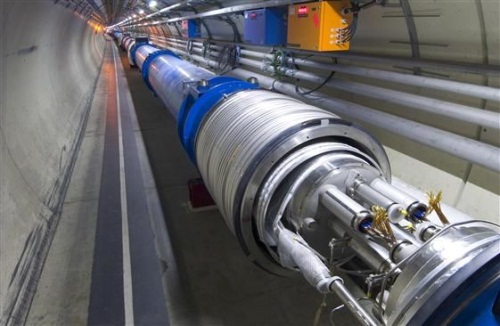
The Large Hadron Collider’s superconducting magnets are just one of the many spin-offs from the race to absolute zero. (Courtesy: CERN)
By Hamish Johnston
Physicists have long been interested in how nature behaves under very cold conditions, and about 200 years ago the race began to realize the lowest temperature ever. Along the way, many new and amazing states of matter have been discovered, including superconductors, superfluids and Bose–Einstein condensates. More recently, access to extremely low temperatures has contributed to the current renaissance in the study of fundamental quantum mechanics and the development of quantum computers.
In his latest radio programme, the BBC’s resident polymath Melvyn Bragg looks at this race to the bottom, which really heated up in the late 19th century when physicists and chemists were feverishly liquidizing a wide range of gases include those cryogenic favourites nitrogen – and a little later in 1908 – helium.
Bragg is joined by regular guest and historian of science Simon Schaffer of Cambridge University together with the physicists Nicola Wilkin of the University of Birmingham and Stephen Blundell of the University of Oxford.
You can listen to the quartet discuss how the discovery of quantum mechanics affected how physicists think of absolute zero – and how the quest for absolute zero will ultimately be thwarted by something akin to Zeno’s paradox. On a more practical note, the panel discusses how extremely cold atoms could be used as geological and other sensors.
And for all you budding science administrators out there, Simon Schaffer reveals who he thinks is the greatest laboratory manager physics has ever known…any guesses who that might be?
You can list to the programme here.
Guidelines
Show/hide formatting guidelines
this text was deletedwhere people live in harmony with nature and animals</q>
Some text